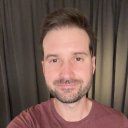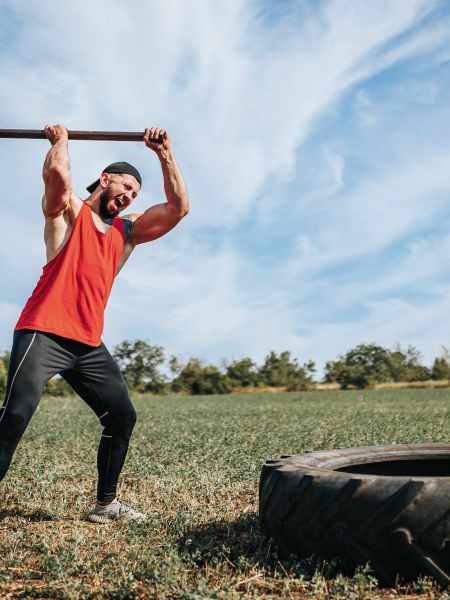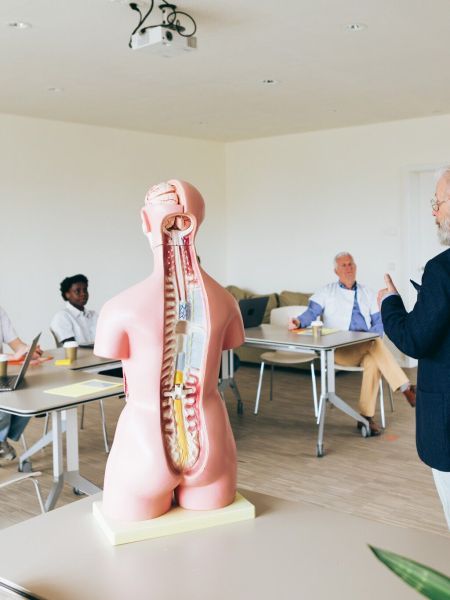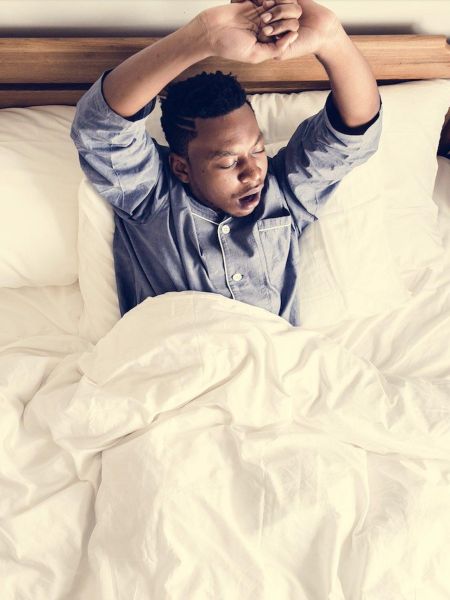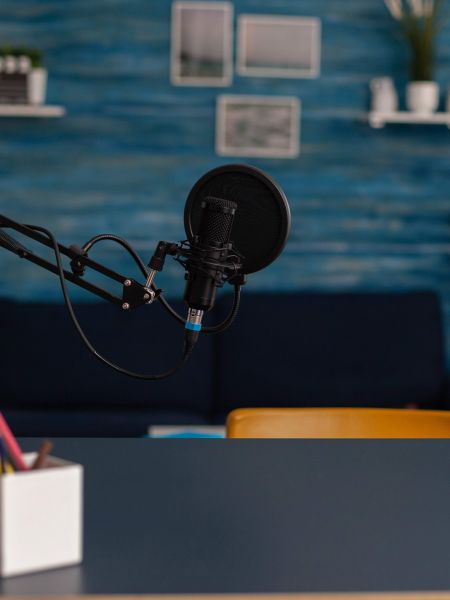Expert Stacks: Brian Leddy
Learn how a health coach pro manages his personal stack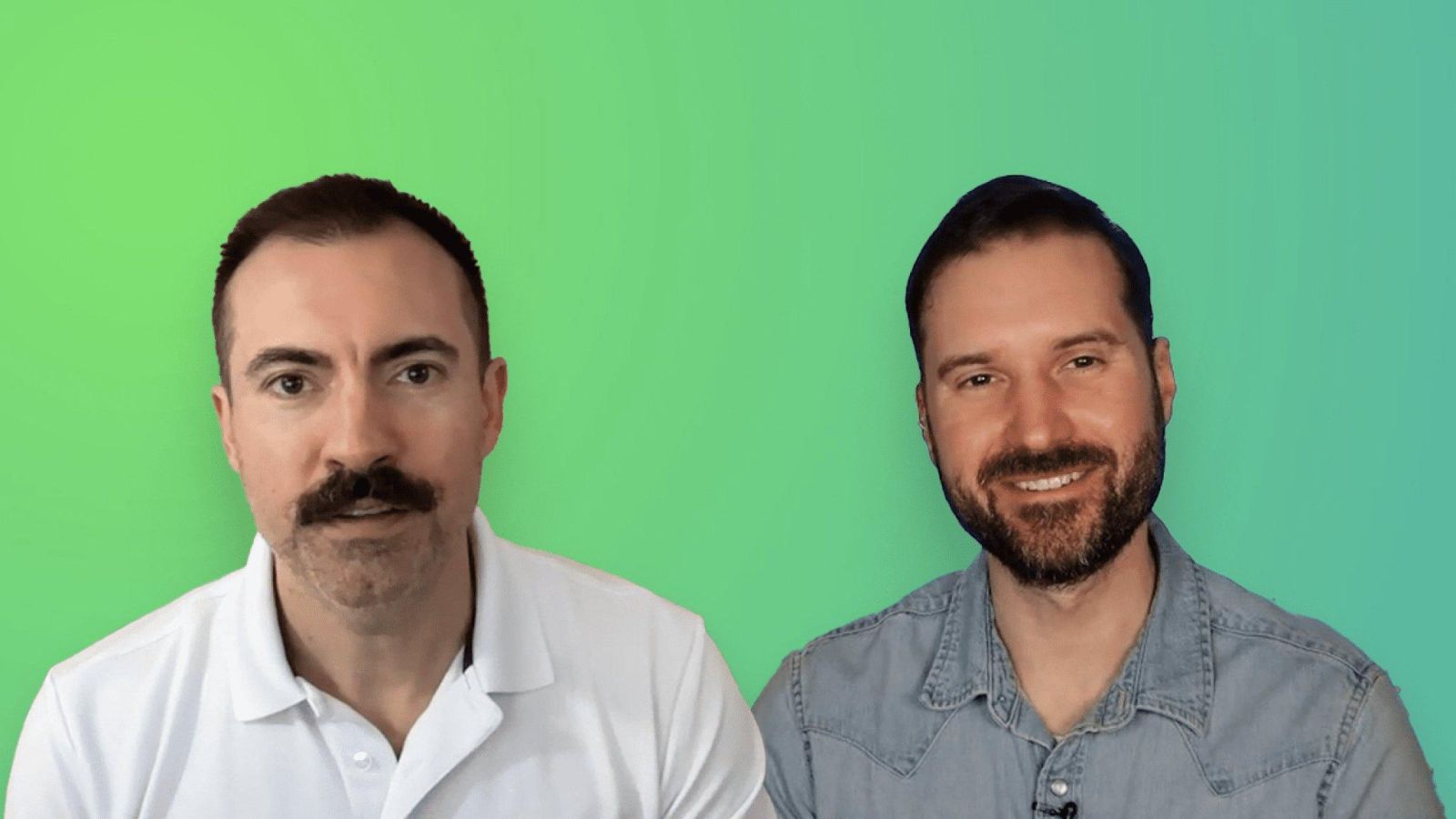
Brian Leddy is the owner of a functional wellness clinic called Leddy Wellness. He supports clients across the US and Canada on their health journey through virtual programs, which are tailored to the unique needs of each individual client.
Brian's BodyStack
Basics:
- Expert: Brian Leddy
- Career: Owner, Functional Wellness Practice
- Company: Leddy Wellness
- Location: Ocean Springs, MS (USA)Diet and Nutrition
Diet/Nutrition
- Meals per day: 2 (Lunch & Dinner)
- Macro tracking: Directionally, Yes
- Fasting practices: Yes, 1-2 times a year 3+ days (Water Fasting)
- Foods avoided: Corn, Gluten/Wheat/Dairy
- Supplement routine: Digestive Enzymes, B Complex, Hormone Balance, D3Exercise and Recovery
Fitness/Exercise
- Exercise: Gym/Lifting 2x Week (includes Kneesovertoes warm up) - Hoops Ultimate Frisbee 1-2x/week
- Recovery strategy: If I'm going heavy on a body part, give that part a full week to recover
- Mobility training: 5 minutes / night
- Mindfulness practice: Pray everyday :)
- Sleep tracker: Used to use Apple Watch, currently not tracking
- Required sleep hours: 6.5 hours, try to get 8 hours
- Nighttime routine: 11pm - 7am
Testing Protocols
- Lab/clinical testing frequency: 1-2x / Year
- Biomarkers tracked: Histamine/DAO in gut (inflammation), Permeability in gut (zonulin) Pathogens 8-OHdG (oxidative stress), Testosterone, Cortisol Sum / DHEA
Meet Brian
When it comes to his own BodyStack (the best practices of fitness, nutrition, and more he stacks through his day and week) Brian puts an emphasis on stacking activities that support muscle maintenance, quality sleep, and detoxifying his environment.
"My health coach and mentor has a great line, 'the best biohack in the world is getting a good night's sleep,'" says Brian. "And I truly believe that. You need to allow your body to renew and rebuild itself and you can that happens when you get eight hours plus of sleep,"
Education and Learning
As he's gone through his health education and certification processes Brian's idea of what it means to be healthy has changed a lot over the years.
"It's funny, back in my 20s and 30s, it was all about just having a six pack," says Brian. " If you had a six pack, you were healthy. I'm glad that things have transformed to be a little bit more sophisticated in terms of measuring health.
"I think looking good is important and feeling good is really important. But I think for most people and most experts in health and wellness would agree that if you can clinically correlate health with the way you look and feel, that's sort of a better encapsulation of whether or not somebody is healthy."
Testing and Toxicity
After switching from a traditional primary care physician to an integrative wellness clinic, Brian has begun doing annual wellness tests. Much of this testing is focused on tracking biomarkers related to metabolic health and hormone levels. But Brian also pays a lot of attention to detoxifying his environment through the cleaners used in his home and the products he uses for personal hygiene.
"The chemicals in your food or household products can absolutely raise the toxicity level in a person's body, which puts stress on your liver, so this is something everyone should care about," says Brian. "If something gets on your skin or you're breathing something in, there's a very good chance it's gonna hit your bloodstream."
Whether you're walking around your home barefoot, or maybe you have kids crawling around on the floor, the products used to clean these surface are making contact with a person's skin, so Brian recommends checking out the online resource that can give a toxicity score to the daily products many people use (ewg.org) to help guide decisions about what should or should not be used in the home.
Nutrition Stack
When it comes to nutrition Brian sticks to two meals per day (lunch and dinner) and avoids snacking at all costs. Through his health testing, he's learned that he's a fast oxidizer so he places an emphasis on protein and fat for his meals. He avoids gluten, soy and dairy as much as possible. And has noticed a big change in his wellness since giving up alcohol.
"Earlier last year, I made the concerted effort to stop drinking alcohol, and it's been a pretty important reason why I've been able to go through a health transformation," says Brian. "I love bourbon and to not be able to sort of have a bourbon every night. is a little bit tricky. But for me, I've been able to manage life really well without, with the exception of special occasions. Maybe like two or three times a year, I'll have my glass of bourbon with a rock in it."
Fitness Stack
Hitting the gym twice a week is standard for Brian. When working out his focus is on muscle growth and strength, lifting heavy sets to failure, but he also makes time for active cardio through sports like ultimate frisbee and basketball. Just as important as his workout time, is his recovery time.
"Recovery is so important," says Brian. "To try to do one body part even more than once a week to the point of muscle failure means you have to factor in significant recovery. And you've got to listen to your body. If you don't feel like you're ready to go into a leg workout where you're going for a person record, then you've gotta hold off an extra day."
Industry Influences
For inspiration on assembling his own BodyStack, Brian has pulled teachings from biohackers like Huberman and Brekka, but in particular Brian is a fan of Peter Attila's approach to health and medicine.
"I love how he brings clinical findings to the masses," says Brian. "And he does that in a way where it's fairly understandable. I also love Lane Norton and how he challenges the industry and challenges claims being made. Even though some claims sound logical, and might have been around for a while, he really will push against any type of claim that doesn't have adequate research behind it."
Biohacking the BodyStack
For his own biohacking, Brian limits light exposure as he gets closer to bedtime and occasionally works in some pre-bedtime stretching before reading a book. Brian also finds a lot of benefits for stress and focus come from grounding.
"I'm a big believer in grounding," says Brian. "It's something I try to do once a day. Usually it's like a lunch break type of thing where I'll go outside, just kind of chill out for a few minutes, bare feet, maybe sit or lay in the grass, try to be without my phone for five minutes of the day. That's one of the bigger bio things that I'm doing in addition to cold plunging."
Brian stacks an extra activity alongside his cold plunge routine and that's praying. He finds the cold plunge a peaceful space to fit in those three or four minutes of prayer and gratitude as an important part of his overall wellness habits.
Fasting
Another biohack Brian's experimented with in different forms is fasting. Aside from the autophagy benefits, he thinks a two-day dry fast or even a four-day water fast is something important to try to learn about the body's resiliency.
"One of the things that I find to be most interesting is that fasting strengthens your mental discipline," says Brian. "You increase your ability to understand your body. And you learn things like, 'hey, we can still function without food. We can still go work out. We can work. We can think.' And I think that's very powerful."
Missing from the BodyStack?
Looking at the year ahead, there's one thing Brian feels is missing from his BodyStack.
"Saunas," says Brian. "If I had an infrared low EMF sauna in my house, I'd be a happy man. When I do have the opportunity to go into a sauna, it's fantastic. I think it's really helpful and really healthy. If you can get a sauna two or three days a week in your routine, the sweat is really supportive to your detoxification, and really helps the liver out. So, I'm hoping Santa can bring that to me this year."
Best Practices
Brian shared a lot of detail about his BodyStack. If you want to learn more about Brian's best practices and recommendations based on his health journey you can find that in the video below.
When sharing the most basic advice for helping people improve their wellness with just a small action, Brian thinks many people can benefit from some basic diet education.
"Stay away from inflammatory foods and stay away from processed foods and the sugars," says Brian. "At its most basic level, those changes are going to go such a long way. Those are the key things that I always have to even pull myself back into. Stick to the basics."
For more information about Brian and his functional wellness practice Leddy Wellness learn more at https://leddywellness.com
